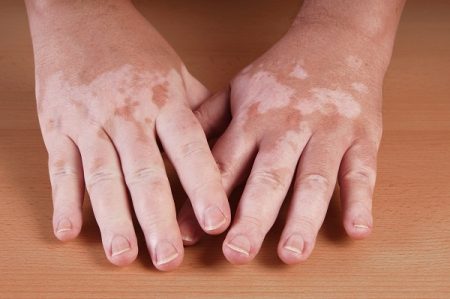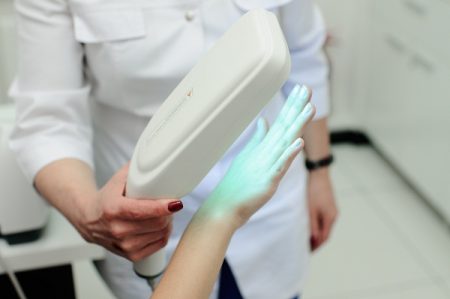Browsing: Vitiligo
Comprehensive Information, Resources, and Support on Vitiligo
Penile Vitiligo (Vitiligo on the Penis): Symptoms, Treatment and More
Vitiligo can affect skin in any part of the body including the penis in men and labia in women. If it affects the penis, it is called penile vitiligo. Vitiligo affects different individuals differently. Some people may have many body parts affected; others may have only one body part affected.
Vitiligo is a problem in which patches of skin lose their colour. It causes the loss of the natural colour of skin. This is called de-pigmentation. The loss of pigments can occur anywhere on your body. These patches are usually common in areas where the skin is exposed to sun such as hands, feet, arms, face, and lips.
Several treatments are available for vitiligo. The main purpose of treatment is to restore the lost color of the skin. The treatment recommended by the doctor for a particular individual will depend on the person’s overall health, age, and location of the patches on the body. Few people prefer to avoid any treatment.
Vitiligo is a self-generated disorder generally caused by autoimmune conditions, hormonal changes, acute emotional trauma, and recurrent episodes of jaundice or typhoid fever, prolonged antibiotic treatments or corticosteroid therapies. Your dermatologist will perform a physical exam of the affected areas on the skin such as those exposed to the sun.
What Causes Vitiligo and What Are Its Risk Factors?
Vitiligo occurs when pigment producing cells called melanocytes die or stop producing melanin, due to which skin loses its characteristics. It is still not clear why these cells die. It is believed that the immune system destroys the melanocytes in the skin, mistaking it as a foreign body.
Vitiligo is a progressive disorder of skin in which melanocytes in the affected skin are selectively destroyed. The disease affects all types of skin, but is more common in darker shades of skin. However, the disorder does not have a racial or ethnic preference. Currently, there is no cure for it.









